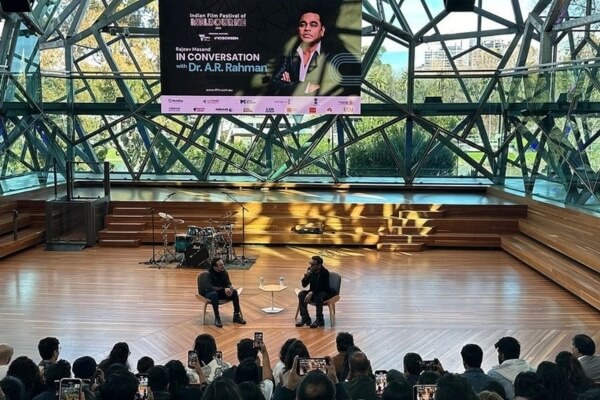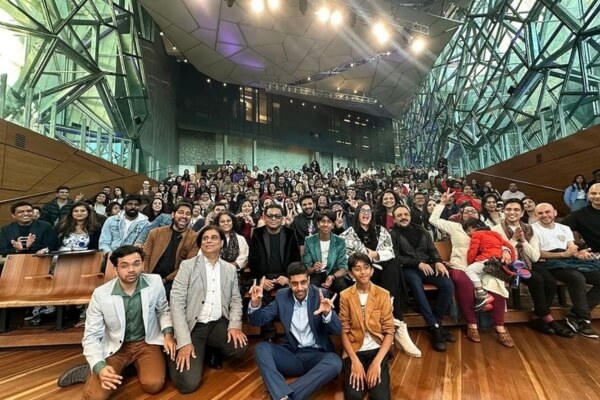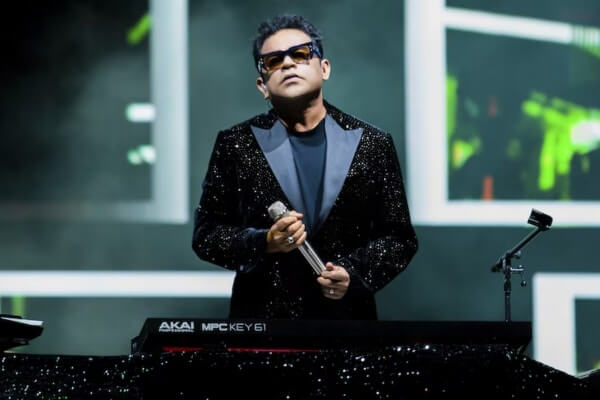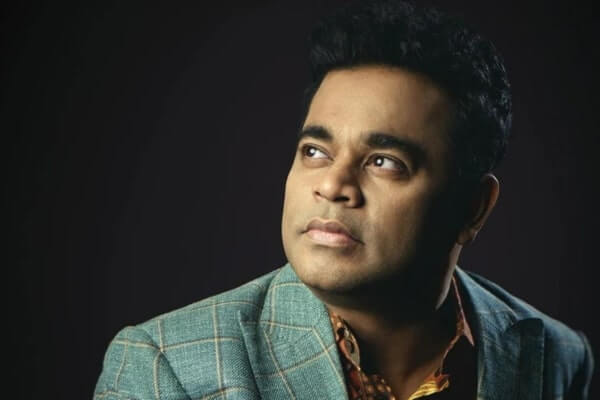Dr. AR Rahman, one of India’s most celebrated composers, is currently in Australia for the world premiere of the film Headhunting to Beatboxing, his second venture as a producer, screening at the Indian Film Festival of Melbourne (IFFM). In a recent conversation with fellow music composer Ram Sampath, Rahman shared his thoughts on his philosophy behind composition, his approach to maintaining high standards in his work, his adaptability with artists, and his hopes for India’s future.

An endless reservoir of inspiration for patriotic Bollywood songs
Dr. Rahman’s discography is replete with memorable compositions that evoke a deep sense of patriotism and love for India. These aren’t mere patriotic anthems but heartfelt tributes to his beloved nation. As actor Aamir Khan aptly described, these tracks are Rahman’s “love songs for the country.”
Among these, “Maa Tujhe Salaam,” “Ye Jo Des Hai Tera,” and “Bharat Ham Ko Jaan Se Pyaara Hai” are some that have left an indelible mark on Indian music and culture. Rahman elaborated on his philosophy behind these compositions, saying, “Personally, every song should be internalised within me first. I should believe that I am the one singing it. If I don’t mean what I sing, then I feel that it’s cheating.”
His dedication to authenticity shines through in his work. Rahman emphasised his aversion to “preachy” or “fake patriotism.” For him, “Maa Tujhe Salaam” is a poignant example of this principle. He explained, “With Maa Tujhe Salaam, the lyrics had to symbolise my mother. That’s what that song is. It’s like you’re singing about a common mother to all Indians.” This humanisation of the nation imbues the song with genuine emotion, making it a powerful expression of national pride.
Rallying against the ‘chalta hai’ culture in India
Dr. Rahman, known for his pursuit of excellence and disdain for mediocrity, was critical of the ‘chalta hai’ attitude prevalent in some parts of the industry. This attitude, which can lead to complacency and a lack of rigor, is something Rahman actively resists.
“I’ve had to polish myself. I have to set the bar for myself, that’s the most difficult thing,” he said.
View this post on Instagram
Rahman’s commitment to personal and professional standards underscores his belief that you need to give your 100% at every instance. “I have always felt like you will be judged on the basis of your worst work, not your best work. Because it’s that work [your worst output] that may stick in some listener’s mind, and they may form an opinion based on that.”
Adapting his style to bring out the best from Indian artists
Dr. AR Rahman’s adaptability and approach to working with different talents reflects his deep understanding of different creative processes. He recalled his experiences with singer Lucky Ali during the production of the soundtrack for the film Boys in 2003. “When I think of Lucky Ali, when he used to come in, it took him 45 minutes to warm up,” Rahman noted. “We just loved his voice. He used to warm up and start singing. And then, he was free-flowing. He was like a Lamborghini after that.”
This flexibility extends to his approach with other artists. Rahman contrasted this with the working style of the late SP Balasubramaniam, who could deliver a song in just 7-10 minutes. “SPB would come for a song, record it in 7-10 minutes and go,” he said, highlighting the efficiency and skill of the late singer.

“I remember, there used to be five orchestras and different languages – Tamil, Telugu and Kannada. We would all be waiting and hungry. There was no A/C. So, he needed to sing live with all those people, and he would do it. He used to sing 4-5 songs in the afternoon and then 4 again in the evening.”
Similarly, Dr. AR Rahman mentioned singers like K.S. Chithra, who could seamlessly integrate their Carnatic training into their work, demonstrating how foundational skills can enhance performance.
Rahman’s vision for India, “be more forward-thinking”
Rahman’s dream for India extends beyond the realm of music and into the broader cultural and technological landscape. He voiced a desire for India to move beyond its glorification of the past and focus on future innovations. “I play keyboards made by Japan, the United States, and France. There’s no instrument that India has made,” Rahman pointed out, illustrating his concern about India’s relative lack of technological advancement in the arts.

His frustration is not just with the technological sphere but with a general mindset that clings to past achievements rather than aspiring towards future possibilities. “There are so many Indians working for NASA, at Apple, Microsoft, and others… But my thing is, why don’t we shine artistically? What makes us just want to glorify the past rather than create the future?” he asked.
Dr. AR Rahman’s call for a forward-thinking approach reflects his belief that India has the potential to lead not just in preserving culture but in innovating and creating new paths for future generations. “We talk about culture, we talk about wisdom, we seem to have everything. But then, how do you present it to the younger audience and for the next generation? That’s the challenge,” he concluded.
Headhunting to Beatboxing screens on Saturday, 24 August as part of IFFM’s Regional Rhapsody program.
READ ALSO: ‘My Melbourne’ premiere sets the tone for an inclusive 15th IFFM





